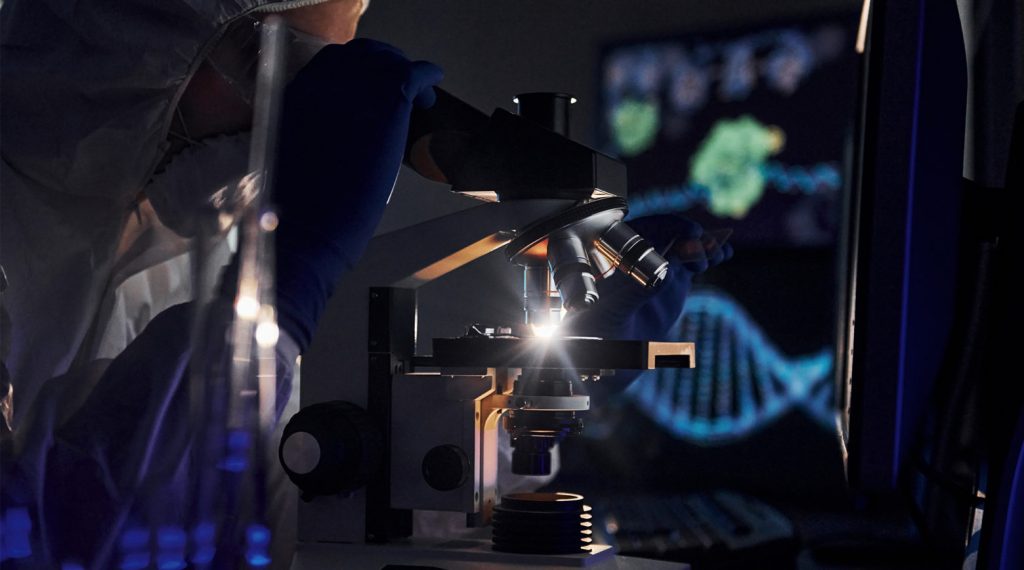First Line Software is a premier provider of software engineering, software enablement, and digital transformation services. Headquartered in Cambridge, Massachusetts, the global staff of 450 technical experts serve clients across North America, Europe, Asia, and Australia.
About 35 percent of all healthcare organizations plan to leverage artificial intelligence (AI) within two years — and more than half intend to do so within five. While only 4.7 percent of the 85 Healthcare IT News and HIMSS Analytics survey respondents are already using AI technologies, the future looks promising. All health care organizations and digital health solutions vendors are aware of the potential uses of AI: decision-making systems, diagnostics, and precision medicine. Also, AI could help to improve work processes, develop security systems, write prescriptions for patients and even boost the financial results of hospitals and clinics.
Mega vendors are developing AI solutions for health care right now. DeepMind, the Google-owned artificial intelligence company, is developing a new technology similar to blockchain for the secure tracking of patient health data. The aim is to enable hospitals, and eventually patients, to gain real-time insight into where and how data is being used.
Nuance Communications and Epic are partnering to integrate the artificial intelligence capabilities of Nuance’s Computer-Assisted Physician Documentation (CAPD) tool into the Epic NoteReader CDI module for Clinical Documentation Improvement. By embedding the CAPD tool within Epic, the companies said physicians can get feedback at the point of care as provider organizations work to improve severity-adjusted quality scores and better understand reimbursement and risk adjustment factors to improve care management.
Medical equipment is also becoming more intelligent. MedyMatch Technology and Samsung NeuroLogica have announced a partnership to help paramedics and EMTs assess stroke patients faster and more accurately in prehospital environments. By integrating MedyMatch’s artificial intelligence technology into ambulance-based mobile stroke units equipped with Samsung NeuroLogica’s CereTom scanner, first responders can more easily determine whether a patient is suffering from a blood clot or hemorrhage.
In other news, IBM Watson Health and SNOMED CT recently announced that Watson Health will adopt SNOMED CT to support its work in the global standardization of patient data. Serving as an international standard for clinical terminology, SNOMED CT enables the global exchange and analysis of medical information stored in electronic health records. Standardizing its offerings on SNOMED CT will support IBM’s efforts to deliver accurate information that will help clinicians evaluate treatment options and improve the efficiency of quality healthcare delivery.
Where is the actual use of AI? For example, take the agreements between Google subsidiary DeepMind and the likes of Moorfields Eye Hospital and University College London Hospitals (UCLH) Trust which both pave the way for a future where the routine work of reading scans is completed by an algorithm rather than a healthcare professional, leaving clinicians with more time for patients.
These partnerships lay the foundation for greater use of AI in the National Health Service (NHS) for England by providing data that DeepMind can use to customize its algorithms for healthcare workers. In the case of Moorfields, one million eye scans along with data about the conditions they represent will be fed into the DeepMind software, teaching it how to recognize eye illnesses solely from the scans in the future.
Under the UCLH deal, 700 scans of head and neck cancers will be shared with DeepMind to see whether its AI can be used in ‘segmentation’, a lengthy process that uses patient scans to identify the areas to be treated or avoided during radiotherapy. Currently, this process takes four hours — a figure that DeepMind and the Trust claim could eventually be reduced to one hour with the use of AI.
GE Healthcare and Hartford HealthCare recently announced a seven-year initiative to improve the safety and speed of patient care at the Connecticut-based healthcare system. GE will also help implement and activate Hartford HealthCare’s new Care Logistics Center. The Center’s goal is to reduce patient wait times and improve communications between providers and facilities.
Artificial intelligence could analyze big medical data, for example from EHR systems, faster and more accurately than humans. That’s why more and more health care organizations will adopt the use of AI in the future.
El Camino Hospital in California has seen a dramatic turnaround in the number of falls by patients in its 420-bed facility and advanced predictive analytics is getting a lot of the credit. Serious efforts were put to transform the hospital’s fall prevention program which uses prescriptive analytics to identify and alert hospital staff about at-risk patients who require immediate attention to ensure their safety.
And the Office of the National Coordinator said American healthcare is at the dawn of a new age – the age of Precision Medicine Initiative (PMI). The convergence of federal funding under the 21st Century Cures Act, which allocates money for the National Institutes of Health to expand PMI, and work that ONC is undertaking with NIH, FDA, HHS Office for Civil Rights and Veterans Affairs, will drive safe and secure health information exchange to advance precision medicine initiatives.
Several programs gained momentum during the past year. Examples include Sync for Science (S4S), S4S Privacy and Security, and Sync for Genes as well as the All of Us Research program which is striving to include 1 million patients. The Sync for Science pilot is already underway at Harvard Medical School. Members of Harvard’s biomedical informatics department are working to implement FHIR-based workflows for connecting research apps to back-end electronic health records platforms with EHR vendors Allscripts, athenahealth, Cerner, drchrono, Epic, and McKesson.
Stay tuned to this blog and we’ll tell you about the best mobile healthcare projects soon!


 Clinovera
Clinovera



